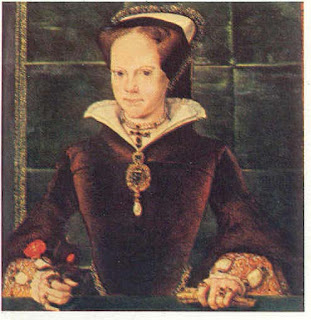Reformation Spreads Through Europe
John Calvin and the Reformation in Geneva
Monday: Book Exchange:
Turn in
Bondage of the Will; pick up Calvin's
Institutes of the Christian Religion.
Turn in Schaeffer, Bradford, Dickens, and Veith.
Notes: The Reformation
Survey
Western Civilization, Chapter 13, "Reformation and Religious Warfare in the 16th Century"
Introducing John Calvin,
The Institutes of the Christian Religion, & Calvinism
Tuesday: Luther: A Test Over the Obvious
Survey Work on
Western Civilization, Chapter 13. Pages 347--352.
Assign and begin Calvin's "Prefatory Address" to King Francis I
Wednesday:
Survey Work on
Western Civilization, Chapter 13. Pages 352-356.
Discussion of Calvin's "Prefatory Address"
Assignment of Calvin's Epistles to the Reader and Method and Arrangement of the Whole Work.
Assignment of Book III, Chapter XX, pages 143-201, "Of Prayer"
Thursday:
Complete Survey Work on
Western Civilizations, Chapter 13. Pages 356-366.
Discussion of Calvin, Doctrine, Prayer, Geneva, etc.
Friday:
Test over
Western Civilizations, Chapter 13.
Continued Discussion of Calvin, Geneva, and Prayer
Readings, Writings, & Musings:
Western Civilizations, Chapter 13.
Selections from
The Institutes of the Christian Religion
Journal Entries on Your Readings

The historian Froude said, “Calvinism has produced characters nobler and grander than any which republican Rome ever produced.
- The historian Merle D’Aubigne said, “Wherever Calvinism was established, it brought with it not only truth but liberty, and with all the great developments which these two fertile principles carry with them.”
The historian Motley said, “To the Calvinists more than to any other class of men, the political liberties of Holland, England, and America are due.”
The Frenchman Guizot said, “Calvin’s Institutes, in spite of its imperfections, is, on the whole, one of the noblest edifices ever erected by the mind of man, and one of the mightiest codes of moral law which ever guided him.”
The historian John Fiske said, “The promulgation of Calvin’s theology was one of the longest steps that mankind has taken toward personal freedom.”
The historian George Bancroft said, “They (Calvinistic doctrines) infused enduring elements into the institutions of Geneva, and made it for the modern world, the impregnable fortress of popular liberty—the fertile seed-plot of Democracy.”
Bancroft also said, "He that will not honor the memory, and respect the influence of Calvin, knows but little of the origin of American independence."









